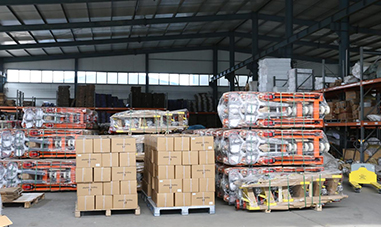


The Utility and Advantages of Hanging Crane Scales
Hanging crane scales are essential tools in various industries, particularly in construction, shipping, and heavy manufacturing. They provide an efficient and accurate means of measuring the weight of bulky items, making them indispensable in settings where precision and safety are paramount. This article explores the features, applications, and advantages of using hanging crane scales.
What are Hanging Crane Scales?
Hanging crane scales, as the name implies, are weighing devices designed to hang from a crane or similar structure. Typically suspended from a hook, these scales measure the weight of heavy objects by using load cells, which convert the force of the object's weight into an electrical signal. The information is then displayed on a digital or analog screen, providing operators with an instant reading.
These scales come in various sizes and capacities, often ranging from a few hundred kilograms to several tons, making them versatile for different applications. Their robust construction ensures durability, even in harsh industrial environments.
Applications of Hanging Crane Scales
One of the primary applications of hanging crane scales is in warehouses and shipping yards, where they facilitate the loading and unloading of heavy goods. Workers can easily weigh pallets of goods, large machinery, and even shipping containers before they are lifted or moved. This capability is crucial for ensuring compliance with weight restrictions and for optimizing storage space.
In construction sites, hanging crane scales play a vital role in managing materials efficiently
. They help measure the weight of construction blocks, steel reinforcements, and other materials that need to be lifted to various heights. Accurate weight measurements also help in planning lifting operations and ensuring that cranes operate within their safe load limits, reducing the risk of accidents.
Hanging crane scales are also used extensively in manufacturing industries that require precise measurements for quality control. In metalworking plants, for instance, they are used to weigh raw materials and finished products, ensuring that specifications are met before goods proceed to the next production stage.
Advantages of Hanging Crane Scales
The primary advantage of hanging crane scales is their ability to provide quick and accurate weight measurements. Unlike traditional scales, which may require items to be placed on a platform, hanging scales allow for measurements to be taken in mid-air, considerably simplifying the weighing process for bulky items.
Another significant benefit is portability. Many hanging crane scales are designed to be lightweight and easy to maneuver, which is crucial in environments where space may be limited. This portability allows workers to move the scale to different locations as needed, enhancing operational efficiency.
Furthermore, many modern hanging crane scales are equipped with advanced features such as wireless connectivity, allowing measurements to be tracked remotely. This feature is particularly useful for large operations where multiple scales are in use, enabling better inventory management and control.
Conclusion
Hanging crane scales are invaluable tools that enhance safety and efficiency in various industrial applications. Their ability to provide quick and precise weight measurements, combined with their portability and advanced features, make them essential for anyone involved in handling heavy objects. As industries continue to evolve, the role of hanging crane scales is likely to expand, further solidifying their importance in modern operations.



